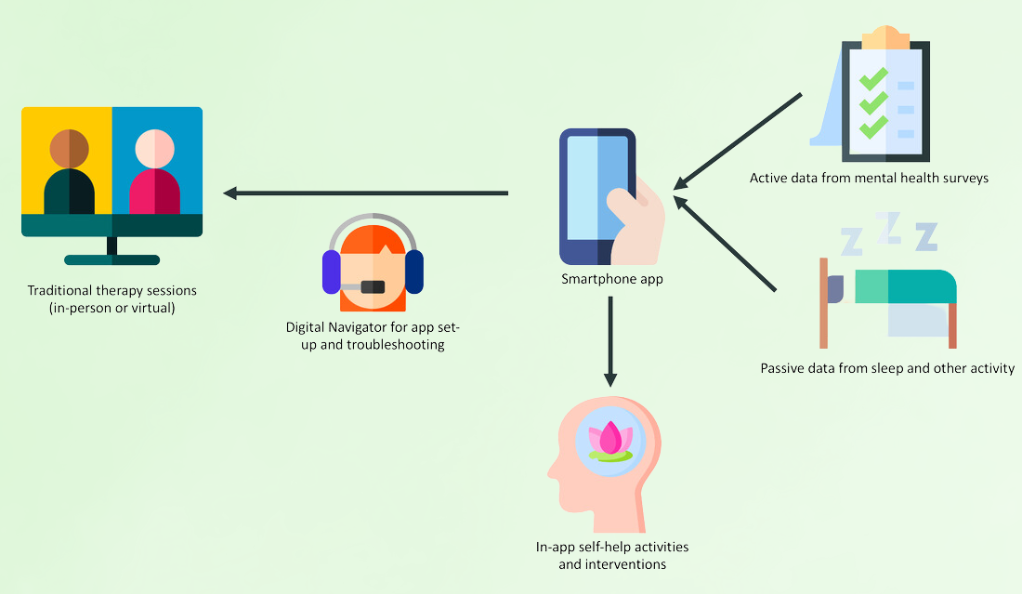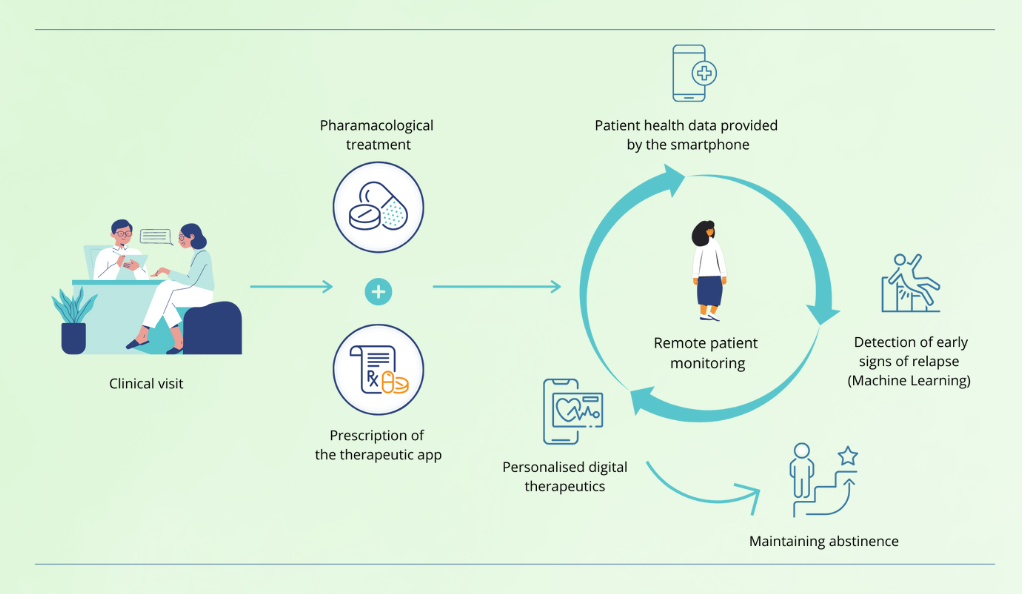Digital Therapies: How Mental Health Apps are Revolutionizing Self-Care
In today’s fast-paced world, mental well-being has become a priority for many. With the advent of technology, digital therapies, particularly mental health apps, have emerged as a beacon of hope for those seeking self-care solutions. These apps are not just tools; they are revolutionizing the way we approach mental health. The increasing reliance on smartphones and the internet has paved the way for these apps to become an integral part of our daily lives. They bridge the gap between traditional therapies and the modern-day needs of individuals, offering a blend of convenience and effectiveness.
The Digital Shift: From Traditional Therapy to Apps

Traditional therapy has its merits, but the digital age demands more accessible and flexible solutions. Mental health apps offer 24/7 support, anonymity, and a plethora of resources right at one’s fingertips. The shift from in-person sessions to digital platforms has been significant over the past decade. With the global pandemic pushing more people indoors, the reliance on these apps has only grown, proving their worth in providing essential mental health support during challenging times.
Benefits of Using Mental Health Apps
- Accessibility
No matter where you are, mental health support is just a click away. For those living in remote areas or those with mobility issues, these apps break down barriers, ensuring everyone has access to quality mental health resources. - Cost-Effective
Many apps offer free resources or charge significantly less than traditional therapy sessions. This democratization of therapy ensures that financial constraints don’t hinder one’s path to mental well-being. - Personalization
Tailored solutions and therapies based on individual needs ensure that users receive the most relevant and effective care possible.
Popular Mental Health Apps and Their Features
There’s an app for every need. From meditation to cognitive behavioral therapy, the digital realm is brimming with options. Apps like “Calm” and “Headspace” focus on meditation and mindfulness, while others like “Talkspace” and “BetterHelp” connect users with licensed therapists. The diversity in features ensures that individuals can find the right fit for their unique needs, be it daily affirmations, guided meditations, or professional counseling.
The Science Behind the Screen
It’s not just about convenience. Studies have shown that certain mental health apps can be as effective as face-to-face therapy, especially when combined with traditional methods. Research indicates that consistent use of these apps can lead to significant improvements in mood and overall mental well-being. The blend of technology and evidence-based therapeutic techniques offers a potent solution for those seeking mental health support.
Challenges and Concerns
While there are numerous benefits, it’s essential to be aware of potential pitfalls, such as data privacy issues and the risk of misdiagnosis. As with all digital platforms, users must be cautious about sharing personal information. Additionally, while many apps are developed with the guidance of mental health professionals, they cannot replace the nuanced diagnosis and care provided by in-person therapy.
The Future of Digital Therapies
With advancements in AI and machine learning, the potential for personalized and effective mental health support is boundless. Imagine an app that can predict a depressive episode based on your digital behavior and offer preemptive support. The fusion of technology and mental health expertise promises a future where digital therapies are even more integrated, personalized, and effective.

How to Choose the Right App for You
Not all apps are created equal. It’s crucial to research, read reviews, and consult professionals if needed. Consider your specific needs – are you looking for daily mindfulness exercises, or do you need more intensive therapy sessions? By understanding your requirements and doing thorough research, you can find the perfect app to support your mental health journey.
Real-life Success Stories
Countless individuals have found solace, support, and success through mental health apps. From busy professionals who find mindfulness exercises beneficial during work breaks to individuals in remote areas who now have access to quality therapy, the stories are diverse and inspiring. These testimonials underscore the transformative power of digital therapies and their potential to change lives.
Conclusion: Embracing the Digital Revolution for Mental Well-being
The fusion of technology and mental health care is not just a trend; it’s a movement. As we continue to navigate the complexities of modern life, digital therapies offer a beacon of hope and a path to holistic well-being. Embracing this digital revolution ensures that we are equipped with the best tools to face the mental health challenges of the 21st century.
FAQs
No, while they can be incredibly beneficial, they should be used as a complement to traditional therapy, not a replacement. Traditional therapy offers a depth of understanding and a human touch that apps can’t replicate. However, apps can provide immediate support and resources, making them a valuable addition to one’s mental health toolkit.
Research the app, read user reviews, and consult with mental health professionals. Ensure the app is backed by scientific research and has proper data privacy measures. A reliable app will often have endorsements from mental health organizations or professionals in the field.
Yes, many individuals use various apps to cater to different needs. However, it’s essential to ensure that they don’t offer conflicting advice or therapies. Using multiple apps can provide a comprehensive approach to mental well-being, but it’s crucial to ensure consistency in the advice and resources provided.
Some potential risks include data privacy concerns and the possibility of misdiagnosis. Always use apps from reputable sources and consult with professionals if in doubt. It’s also essential to remember that while apps can offer support, they shouldn’t be the sole source of mental health care, especially in crisis situations.
It varies based on individual needs. Some might benefit from daily use, while others might use them a few times a week. Listen to your needs and consult with professionals if unsure. Regular engagement can maximize the benefits, but it’s essential to find a balance that works for you.
